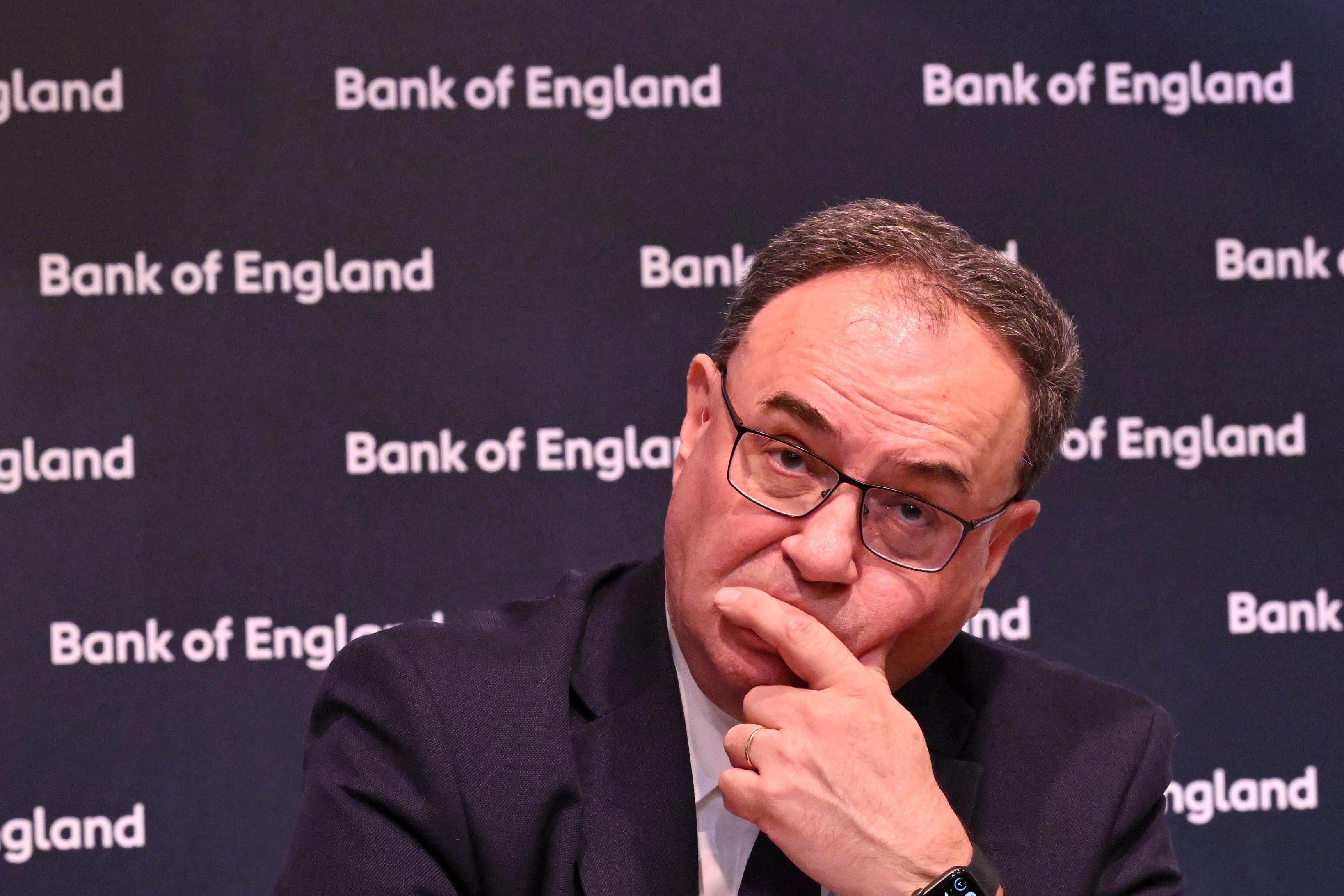Surprise inflation jump ‘wipes out flexibility for Bank on interest rates’
The unexpected jump in UK inflation in February could make it harder for the Bank to justify pausing its prolonged cycle of rate hikes, say experts.

Your support helps us to tell the story
From reproductive rights to climate change to Big Tech, The Independent is on the ground when the story is developing. Whether it's investigating the financials of Elon Musk's pro-Trump PAC or producing our latest documentary, 'The A Word', which shines a light on the American women fighting for reproductive rights, we know how important it is to parse out the facts from the messaging.
At such a critical moment in US history, we need reporters on the ground. Your donation allows us to keep sending journalists to speak to both sides of the story.
The Independent is trusted by Americans across the entire political spectrum. And unlike many other quality news outlets, we choose not to lock Americans out of our reporting and analysis with paywalls. We believe quality journalism should be available to everyone, paid for by those who can afford it.
Your support makes all the difference.An unexpected resurgence in UK inflation could strengthen the case for the Bank of England to further raise interest rates to keep a lid on soaring prices, experts have said.
Economists had been on the fence about whether Britain’s central bank will opt for another rate rise at Thursday’s Monetary Policy Committee (MPC) meeting, following a period of instability in the global banking sector.
But the surprise jump in Consumer Prices Index inflation, from 10.1% in January to 10.4% in February, could make it harder for the Bank to justify pausing its prolonged cycle of rate hikes.
Many economists think the MPC will increase the base rate by at least 0.25 percentage points, to 4.25% from the current rate of 4%, piling more pressure on borrowers.
Whatever flexibility the Bank of England may have thought it would have on Thursday was wiped out by Wednesday morning's inflation data and once more, the topic of conversation has shifted to whether 0.25 percentage points will be enough
Craig Erlam, a senior market analyst for OANDA, said the inflation figures came as a “crushing blow” for the Bank.
He said: “Whatever flexibility the Bank of England may have thought it would have on Thursday was wiped out by Wednesday morning’s inflation data and once more, the topic of conversation has shifted to whether 0.25 percentage points will be enough.”
He added there is “nothing that would justify a pause” in raising interest rates, “even against the backdrop of financial stability concerns and the knock-on effects of aggressive rate hikes”.
It follows the collapse of the US’s Silicon Valley Bank and the historic rescue takeover of Credit Suisse, with both events sending shockwaves through the financial markets and sparking fears over a global banking crisis.
It also threw into question whether higher interest rates were putting too much pressure on smaller lenders, which could be buckling under the weight of losses on their investments.
The US Federal Reserve will be making its decision on interest rates in America late on Wednesday, which will be watched intently given the banking woes, with the potential for further market turbulence.
It could also influence the MPC’s decision on this side of the Atlantic.
Furthermore, the Swiss National Bank faces a difficult interest rate decision on Thursday, with the stability of its financial system thrown into doubt following the demise of Credit Suisse.
ING Economics suggests that the Bank of England will want to see more evidence that inflationary pressures are easing up more broadly before ending its cycle of rate hikes.
ING’s experts are also predicting a 0.25 percentage point increase, but said it could be the final rise before rates fall back down.
When deciding the appropriate level of the bank rate the MPC will have to assess which is the lesser of two evils
Meanwhile, Investec Economics agreed that the worse-than-expected inflation reading will make the MPC’s decision more difficult, but predicted the Bank will opt for a “wait-and-see approach” and keep rates at 4% while it assesses the situation.
Ellie Henderson, an economist for Investec, said: “When deciding the appropriate level of the bank rate, the MPC will have to assess which is the lesser of two evils: the risk of inflation being higher for longer or the current threat to financial stability stemming from the rapidly evolving fears of a banking crisis.”